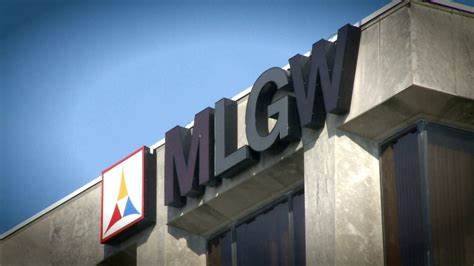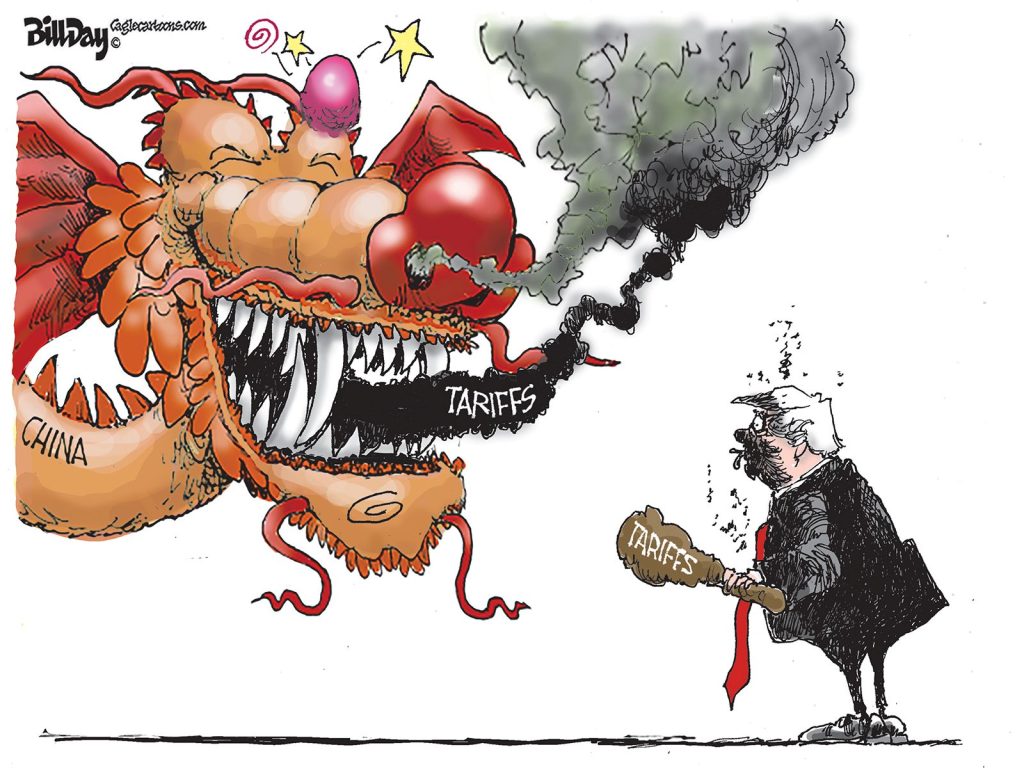Doug McGowen’s honeymoon period as president of MLGW is over – that is, if it ever really began.
The fact that the MLGW executive staff and board of commissioners seem largely unaware that the first year of the McGowen era has been squandered says volumes about the state of City of Memphis’ largest division.
Apparently, the decision was made to roll out big visions, big talking points, and big promises at a time when ratepayers are tired of talk and anxious for results that address the basic function for which the utility was created – to deliver reliable, dependable electricity.
All the grand plans are well and good, but the question is whether some of them are taking MLGW’s eye off the ball. And the fact that public expectations are so low is a symptom of how far MLGW has fallen from the days when it had one of the highest positive reputations of any public service in our community.
Tone Deaf First Steps
MLGW, who lost some exemplary commissioners through some puzzling appointments by Mayor Strickland, has produced an operation that today too often mimics Tennessee Valley Authority, seeing itself as more corporate than public with a reflex tendency to obfuscate and obscure, to dismiss criticisms as ill-informed, and to feign collaboration while not deviating from its own agenda.
That’s the context which Mr. McGowen entered and it appears unchanged, if not more entrenched, in exuding an attitude which results in the public continuing to feel on the outside looking in although MLGW is a public entity, to often feel they are being talked at rather than talked with, and to receiving responses to criticisms that border on condescension.
With this in mind, the agenda for MLGW in the McGowen era so far feels more tone deaf than anything else. At a time when public confidence needs to be improved in the face of frequent – and sometimes inexplicable – electrical outages, Mr. McGowan’s reprise of his celebrated COVID briefings had little of the same positive impact since it was hard for explanations not to sound like excuses.
In the category of the inexplicable, Mr. McGowen proposed the move of MLGW headquarters and its 500 employees from downtown Memphis to a location in unincorporated Shelby County adjacent to Cordova. As evidence of its tunnel vision and lack of sensitivity to public opinion, the MLGW board approved buying 65 acres and a 300,000 square foot building at 7135 Goodlett Farms Parkway for $31 million.
Justifications for the headquarters move were thin at best and it was hard to shake the feeling that it was an idea born from a conversation between someone with influence who got the ear of someone at MLGW to pursue a new headquarters as part of a real estate deal. One MLGW board member said that the purchase of the building would be a “steal” but there was little awareness expressed about the negative impact on downtown from such a move. The quick defense of Mr. McGowen by a real estate-connected Councilman unfortunately fed the notion that the move was all part of a behind-the-scenes real estate deal.
It was predictable that MLGW would roll out an estimate intended to make the public embrace the $31 million price tag. It was the assertion that it would cost $50 million to deal with deferred maintenance and needed improvements of the existing headquarters.
An Ill-Conceived Idea
This is not to deny that the location of MLGW has been an indiscriminate misuse of valuable downtown real estate, not to mention a building whose architecture has always been out of place since it would be better placed in a suburban setting.
If MLGW needs to move, there are obvious alternative locations downtown. It wasn’t too many years ago that Mr. McGowen was pushing for Loew’s Hotel to include the old police headquarters in its plays, the former Raymond James building could be a prominent headquarters on the skyline, and then still, there is obviously space in the Sterick Building or 100 N. Main Building.
Rather than removing 130,000 workdays for MLGW employees who supported downtown restaurants and businesses, MLGW could become a driver in rebuilding downtown’s profile, and it would be consistent with the downtown strategic plan from all those years ago that stated the area’s success is anchored in its ability to remain the center of government services.
Reports are that MLGW has moved past this ill-conceived idea, and hopefully, that is the case, keeping in mind that if suspicions of an insider real estate deal are true, it’s the sort of idea that will go dormant for awhile, waiting to be resurrected after some time has passed.
Out of Touch
To underscore how out of touch it is, on the same day the MLGW board approved a suburban headquarters, it also approved a 12% electricity rate increase. The immediate outrage was predictable and it was not modified as MLGW did not immediately get its footing as it tried weakly to explain the convergence of issues that it positioned as a perfect storm.
Mr. McGowen made the request for a rate increase a year earlier than expected but it wasn’t even the only rate hike. In August, TVA had approved a 4.5% increase for its customers, including those in Memphis, its largest customer base. TVA’s CEO, the highest paid employee in the federal government at $10 million a year, professed concern about the increase’s impact on rate payers but it rang hollow.
Meanwhile, TVA continued to stonewall media FOIA requests for the salaries of four newly created regional vice-president jobs that on the surface appeared to be more political operative-focused than customer service. The Institute for Public Service Reporting refused to go away and finally, a judge ordered TVA to provide the information although even then, the agency played a game to obscure the information. However, the yearly pay for the four new jobs is $1.4 million, which is of course being paid by all of us MLGW customers.
In the midst of Mr. McGowen’s recounting of all the funding needs that MLGW has, it is incredulous that he has refused to seize on the most obvious way to have the money he says he needs: paying less for electricity by leaving TVA. He said he will take up this issue later, but we wish we could be sure. MLGW’s obsession in protecting TVA’s customer base in our community has resulted in frequent manipulations and misdirections which culminated in an RFP that can be best described as bogus.
Time for a Fair RFP
Ranking up there with Mayor Strickland’s failure to get a handle on rising violent crime is the failure to insist on a fair and honest process to evaluate our best options for electricity. After all, his very own energy consultant faulted the MLGW Request for Proposals as misleading and unfair and called for a new RFP. In fact, MLGW and its consultant never turned over critical electrical transmission documents to Mayor Strickland’s energy consultant despite request after request.
If City Council members are to approve Mr. McGowen’s requests, it seems prudent to couple it with a requirement for a new and impartial RFP for electricity transmission.
In addition, Council should ask Mr. McGowen why large corporate clients of MLGW pay significantly less for electricity that homeowners are charged.
After all, the amount that could be saved every year from leaving TVA for another supplier has been estimated as high as $450 million. TVA’s defenders have responded that changing to another company would save “only” about one-third of that amount as if that much savings don’t matter although in only a few years could pay for everything MLGW says it needs.
All in all, this first year has put to the test Mr. McGowen’s reputation in the Strickland Administration as a problem solver. No longer operating in the protective shadow of the Memphis mayor, he is now more directly in the line of fire. Within City Hall, he provoked mixed opinions. Generally, those within his circle of influence are notable for their loyalty while those outside complain of shifting decisions and a sense that he’s always right.
The thorniest – and most controversial – problems facing the Strickland Administration regularly ended up on Mr. McGowen’s desk – from rape kits to COVID, from Liberty Tax Development Zone projects to urban planning, and from a Loew’s Hotel to a major aquarium on Mud Island. It’s a record of significant highs and significant lows, successes and failures.
Background
Mr. McGowen’s appointment as head of MLGW is the climax of a remarkable 12-year climb after retiring as commander of the Naval Support Activity Mid-South to now serving at the pinnacle of one of Memphis’ most important public positions.
It was summer, 2011, and Memphis Mayor A C Wharton was looking to hire someone to head up a special city government innovation program funded by Bloomberg Philanthropies. Mr. McGowen’s timing was fortuitous. Bloomberg Philanthropies had announced a three-year program to fund Mayor’s Innovation Delivery Teams to help five cities deal with pressing challenges – Atlanta, Chicago, Louisville, New Orleans, and Memphis.
At the time, Mayor Wharton asked me for suggestions for someone to head up what was to be called Memphis Mayor’s Innovation Delivery Team. Subsequently, consultant Brian Stephens, who was involved in Leadership Memphis and had met Mr. McGowen as a member of the 2011 Executive Class, said that Mr. McGowen could be a strong candidate for the innovation job.
I forwarded his as one of four people to Mayor Wharton, his key policy adviser Kerry Hayes, and an Atlanta search firm. One was “Douglas McGowen – former commander (CEO) of Naval Support Activity at Millington, passionate about Memphis, is staying here after retirement, broad experience.”
For four years, he was director of Mayor Wharton’s innovation team, and in January, 2016, Mr. Strickland appointed him chief operating officer, where he served until he was appointed by Strickland and confirmed by City Council to be president and CEO of MLGW.
**
Join us at the Smart City Memphis Facebook page and on Instagram for daily articles, reports, and commentaries that are relevant to Memphis.






I think you hit the nail on the head with your analysis of the potential headquarters move by MLGW. But, at the same time, I think you need to cut MLGW some slack. Our public utility suffers from the malady that many socially owned utilities suffer from — too much public oversight by the City Council, The result is a utility that is timid in the extreme — usually attempting to hide it actions from the city government for fear that the actions will be rejected. Remember that, like many publicly owned institutions, MLGW suffers from a lack of maintenance. We have needed major improvements to water, gas, and electrical infrastructure for years. That all costs money — major increases in rates may be necessary. Linking those rate increases to a dislike of MLGW’s electricity supplier is unfair. TVA executives may or may not be paid too much but that has little to do with MLGW. Maybe, MLGW could have purchased electricity cheaper from MISO, but that decision (poor or wise) is now in the distant past. And it is important to remember that MLGW is not just an electricity company — it delivers, for a fee, water and gas. Those are functions that the typical electricity company doesn’t have to cope with. On top of all that, the City, being some sneaky, burdens MLGW with collecting sewer and trash fees, so that the average consumer thinks electricity is far more expensive than it really is.
Just for the record, the decision about purchasing much cheaper electricity from MISO is not in the past. It’s still an issue before the Council. In fact, the last official action was from Mayor Strickland’s energy consultant who said a new RFP that is honest and fair should be issued. TVA’s criticisms of MISO fell apart pretty quickly when it was revealed that it purchases 8% of its electricity from it. I don’t think city government provides enough oversight when the decision about more affordable electricity – just like in our bordering states – for Shelby County ratepayers would still not be languishing. It seems to me that MLGW’s intentional manipulations in that process do not indicate a timid agency but one that feels it is untouchable. More to the point, the Council almost routinely supports anything MLGW brings before them, including all expenses over $50,000.
A good example of the condescending, untouchable, and dismissive reaction embodied in MLGW is the criticism regarding the LED street light replacement project. While it is clear that MLGW did not consider findings and standards that are openly shared by utility providers and cities for LED street lighting efforts, the organization has shown that it also failed to consider the myriad of applications where LED lighting would occur. Limited media coverage of residents’ complaints noting excessive light ‘bleeding’ into private homes in ways comparable to vehicle headlights pointed at homes all night, numerous locations where glare has created safety issues for drivers on area roads, and the ways they have reduced pedestrian safety were dismissed by a MLGW communication rep. These do not represent technology failures, but design and implementation failures. The summary of MLGW’s response is that any negative impact on livability and safety is worth the sacrifice with no indication of thorough research, let alone meaningful attempts to understand resident and property owner preferences and concerns.
This defensiveness projected by MLGW in nearly every conversation also applies to would be investors and a proposed significant redevelopment in Downtown. The concept was all but dismissed via a list of all the utility related reasons why the development ‘couldn’t happen’. Instead of offering solutions, as most quality service providers would, the response served as a summary of MLGW failures and why Memphis cannot evolve into a more vibrant city. At the time, I was floored by MLGWs borderline aggressive opposition to conversations that focused on new investment and thus new utility customers, but now I understand it is a hallmark of their ‘corporate culture’.
From my experience, little has changed in this regard. Meaningful dialogue occurs only after MLGW has exhausted its supply of excuses, contempt, and reluctance to do anything that improves upon the status quo or may require changing operations to address existing failures.